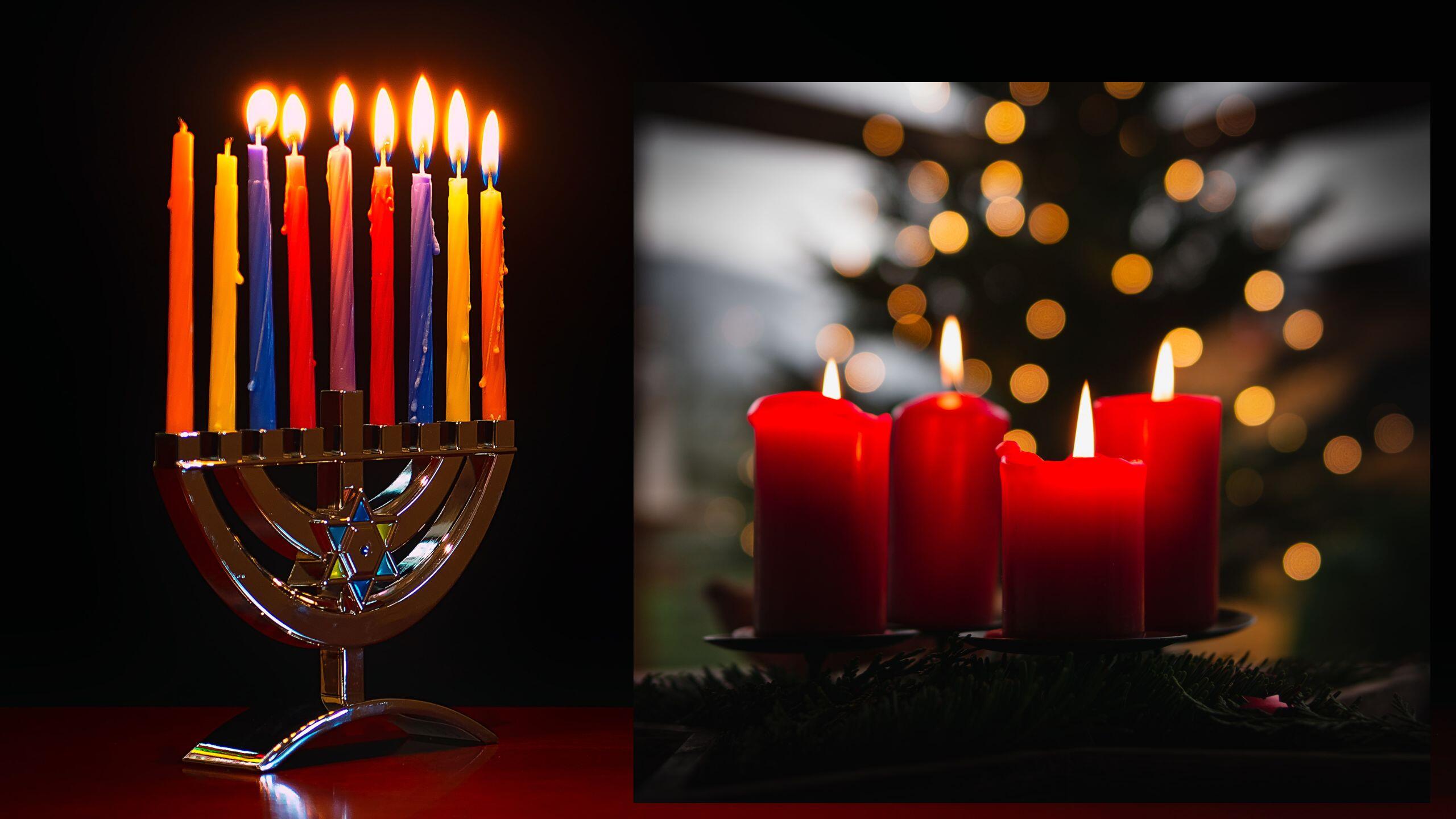Entering Advent and Hanukkah, Catholic Bishops emphasize relationship with Jewish Community
The U.S. Bishops’ Committee on Ecumenical and Interreligious Affairs made a recommitment this week to a relationship with the Jewish community, citing a rising trend of antisemitic incidents.
In a Nov. 28 statement, the bishops said, “Members of the Body of Christ must now become aware of their spiritual ties to the Jewish people chosen first to hear the Word of God.”
The bishops also pointed to scripture when Paul refers to the Church: “In his letter to the Romans, Saint Paul spoke of the Church as wild shoots grafted onto an olive tree, that is, the Jews. As a result, the Church must take care to protect that same root from which she continues to draw sustenance as all await in varied ways the coming of the Messiah,” the letter reads. “The rising trend of antisemitic incidents has become even more painful in light of the Church’s relationship to the Jewish tradition and our connections to the Jewish people in dialogue and friendship.”
The bishops’ statement comes at a time of increased antisemitism throughout the U.S., with the Federal Bureau of Investigation reporting that Jews remain the highest-targeted religious group in the nation.
READ: Special Advent Prayer Service planned in Hoboken— From hate to hope, how do we belong?
New Jersey in particular, has seen a large number of bias incidents in recent years, according to statistics compiled by the New Jersey State Police. Anti-Jewish bias was cited as a motivation for 347 incidents in 2021, up 17% from the 298 incidents reported in 2020. And numbers are even higher for 2022. From January through October of this year, anti-Jewish bias incidents have reached 359, according to preliminary bias reports.
The bishops’ statement also comes at a time when Catholics will be celebrating Christmas and the birth of Christ, and Jews will be celebrating Hanukkah, commemorating the rededication of the Second Temple in Jerusalem.
Father Phil Latronico, of the archdiocese’s interfaith ministry for 36 years and chaplain of Community of God’s Love Church, said isolation caused by the pandemic had increased intolerance of people who are “different” from their own kind.
“We were isolated not only from friends and family but also from the rest of society — people who are different from us. Being separated for so long, coming out of the isolation, has created a lot of xenophobia. There’s been an increase in defacing synagogues and attacks on people,” Father Latronico said.
Most of New Jersey’s bias reports include harassment, vandalism, and intimidation. And although some occur in cyberspace where people can hide behind a screen name, the reports show most happen in the home or school of the victim, on the streets, or in parks or playgrounds.
Most recently in New Jersey, federal prosecutors arrested an 18-year-old Sayreville man in November after he allegedly sent a manifesto online with threats to attack a synagogue and Jewish people. In March, a 27-year-old Manchester man was charged with federal hate crimes for a series of violent assaults on members of the Orthodox Jewish community — including carjacking and attempting to run people over in and around Lakewood.
These incidents conflict with the Church’s belief in the need for inter-religious dialogue, which is described in the Nostra Aetate (“In our time”) issued by Pope Paul VI on Oct. 28, 1965. The Nostra Aetate created a basis for dialogue with non-Christian religious like Buddhism, Hinduism, and Islam. According to the document, it was the first time in history that Catholics were encouraged to dialogue with the followers of other faiths and collaborate with them in promoting spiritual and moral good.
And the Nostra Aetate was an especially significant milestone for the relationship between Catholics and Jews. “Section four of Nostra Aetate repudiates the centuries-old ‘deicide’ charge against all Jews, stresses the religious bond shared by Jews and Catholics, reaffirms the eternal covenant between God and the People of Israel, and dismisses church interest in trying to baptize Jews,” according to Anti-Defamation League.
As the 60th anniversary of the Nostra Aetate approaches, the U.S. Conference of Catholic Bishops’ Committee on Ecumenical and Interreligious Affairs urges “all believers in Christ once again to decry all hatred, persecutions, displays of anti-Semitism, directed against Jews at any time and by anyone,” pointing to the fact that Jesus, Mary, and Joseph were Jewish.
Father Latronico said the bishops’ message to Catholics is that Jews “are our older brothers and sisters in faith, not our enemy.”
Catholics within the Archdiocese of Newark have special reason to follow the Nostra Aetate considering the role of one of its own nuns in creating the declaration. The doctoral research of Sister Rose Thering, an outspoken advocate for Jewish-Christian relations who taught at Seton Hall University’s Institute for Judeo-Christian Studies, was submitted to the Vatican during deliberations for the document. Sister Thering’s research examined Catholic religion teaching materials to see how the Church taught about other faith, ethnic, and racial groups.
Decades later, in 1994, Sister Thering was also instrumental in creating legislation mandating that the Holocaust be taught in New Jersey schools.
According to the Archdiocese’s Synod report, one of the recommendations for continuing the synodal journey in the Archdiocese of Newark suggested by participants is to offer more ecumenical and interfaith discussions in parish and archdiocesan settings.



